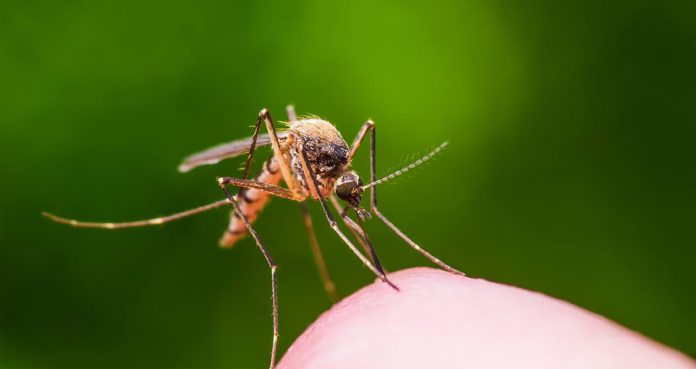Public health officials of the Fulton County have announced that a 44-year-old woman has tested positive for West Nile Virus, making her the first human case in the county this year.
The county’s board of health announced that a local hospital diagnosed the case on Wednesday afternoon; however, the hospital did not give more information on the case.
West Nile Virus is a potentially serious mosquito-transmitted disease, which may cause serious illness or even death. Most individuals who are infected by the virus do not experience symptoms; however, others may experience flu-like symptoms, such as fever, headache, nausea, vomiting, rash, and swollen lymph glands. Some people may develop complications such as meningitis or encephalitis.
Elmer Gray, a public health entomologist from the University of Georgia, explained that the virus could be “particularly dangerous for people who are susceptible to it.” He added, “It’s definitely a concern. People need to take precautions.”
“Standing water is no good. Just be super diligent,” said Gray.
He recommended wearing insect repellant, long-sleeved clothing at night, and light-colored, loose clothing during the day.
The public health officials recommended avoiding standing water around and in the home. They said, “Water that has pooled in flower pots, or in areas as small as a bottle cap, can be good mosquito breeding grounds.”
Gray explained that the peak season for West Nile Virus is August 15 through September 15, and more people are expected to get diagnosed in the coming days. “It can be debilitating for even young, healthy folks,” continued Gray.
Apart from Fulton County, mosquitoes carrying the virus have been found in Chatham County, DeKalb County, Lowndes County, and Glynn County.
More than people in Georgia were tested positive for West Nile Virus last year, while one 90-year-old woman from Dunwoody died from the disease.
Fulton’s deputy health director, Eli Jones, explained previously that the county officials put “chemicals 8,700 water basins and atop manholes with pooling water to kill mosquito larvae before they mature.” Earlier this month, mosquitoes were tested positive for West Nile Virus in Bernalillo County, Albuquerque.






















